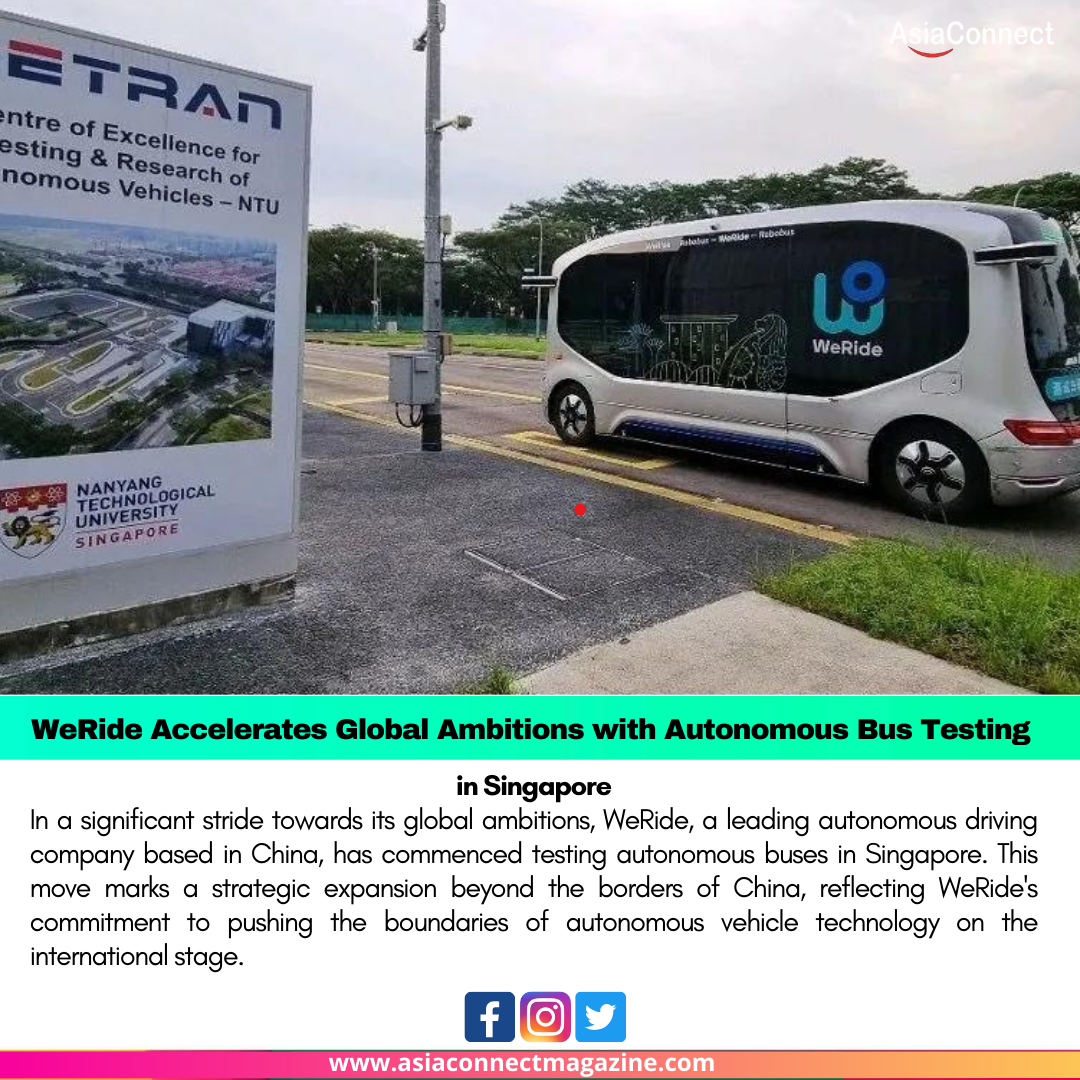In a significant stride towards its global ambitions, WeRide, a leading autonomous driving company based in China, has commenced testing autonomous buses in Singapore. This move marks a strategic expansion beyond the borders of China, reflecting WeRide’s commitment to pushing the boundaries of autonomous vehicle technology on the international stage.
**1. ** Global Expansion Strategy: WeRide’s decision to test autonomous buses in Singapore underscores its ambitious global expansion strategy. Singapore, known for its progressive approach to smart city solutions and commitment to embracing cutting-edge technologies, provides an ideal testing ground for WeRide to showcase the reliability and efficiency of its autonomous driving technology.
2. Collaboration with Local Authorities: WeRide’s foray into Singapore involves close collaboration with local authorities and transportation agencies. This collaboration is crucial not only for obtaining regulatory approvals but also for integrating autonomous vehicles into the existing urban mobility infrastructure seamlessly. The company aims to work hand-in-hand with Singaporean officials to address safety concerns and optimize the performance of its autonomous buses in diverse real-world scenarios.
3. Autonomous Bus Technology: WeRide’s autonomous bus testing represents a leap forward in the application of artificial intelligence and sensor technologies to mass transit. These buses are equipped with advanced sensors, cameras, and radar systems that enable them to navigate complex urban environments, make informed decisions in real-time, and ensure passenger safety. The testing phase allows WeRide to fine-tune its technology to meet the unique challenges posed by bus transportation.
4. Safety as a Top Priority: As with any autonomous vehicle testing, safety remains a top priority for WeRide. The company emphasizes rigorous testing protocols and continuous improvement of its technology to meet the highest safety standards. WeRide’s commitment to safety is not only essential for gaining regulatory approval but also for instilling public confidence in the reliability of autonomous transportation solutions.
5. Accelerating Autonomous Mobility Adoption: WeRide’s entry into the autonomous bus sector aligns with the broader industry trend of accelerating the adoption of autonomous mobility solutions. As urbanization continues to increase, cities worldwide are seeking innovative and sustainable transportation alternatives. Autonomous buses have the potential to revolutionize public transit, offering greater efficiency, reduced traffic congestion, and improved environmental sustainability.
6. Competition and Collaboration in the Autonomous Driving Space: WeRide faces competition from other global players in the autonomous driving space. However, the company’s strategic testing in Singapore positions it as a frontrunner in the race to deploy autonomous buses internationally. Moreover, collaboration within the industry is becoming increasingly common, with companies partnering to share insights, address challenges, and collectively drive the development of autonomous technologies.
7. Significance for the Future: WeRide’s autonomous bus testing in Singapore signifies a pivotal moment in the future of transportation. If successful, it could pave the way for the widespread adoption of autonomous buses not only in Singapore but also in other urban centers worldwide. The insights gained from testing in a diverse urban environment contribute to the refinement of autonomous driving systems, bringing us closer to a future where self-driving vehicles are an integral part of daily life.
In conclusion, WeRide’s venture into autonomous bus testing in Singapore reflects not only the company’s global ambitions but also the transformative potential of autonomous technology in redefining the future of urban mobility. As the autonomous driving landscape evolves, collaborations, regulatory advancements, and successful testing outcomes will play pivotal roles in shaping a new era of transportation.





